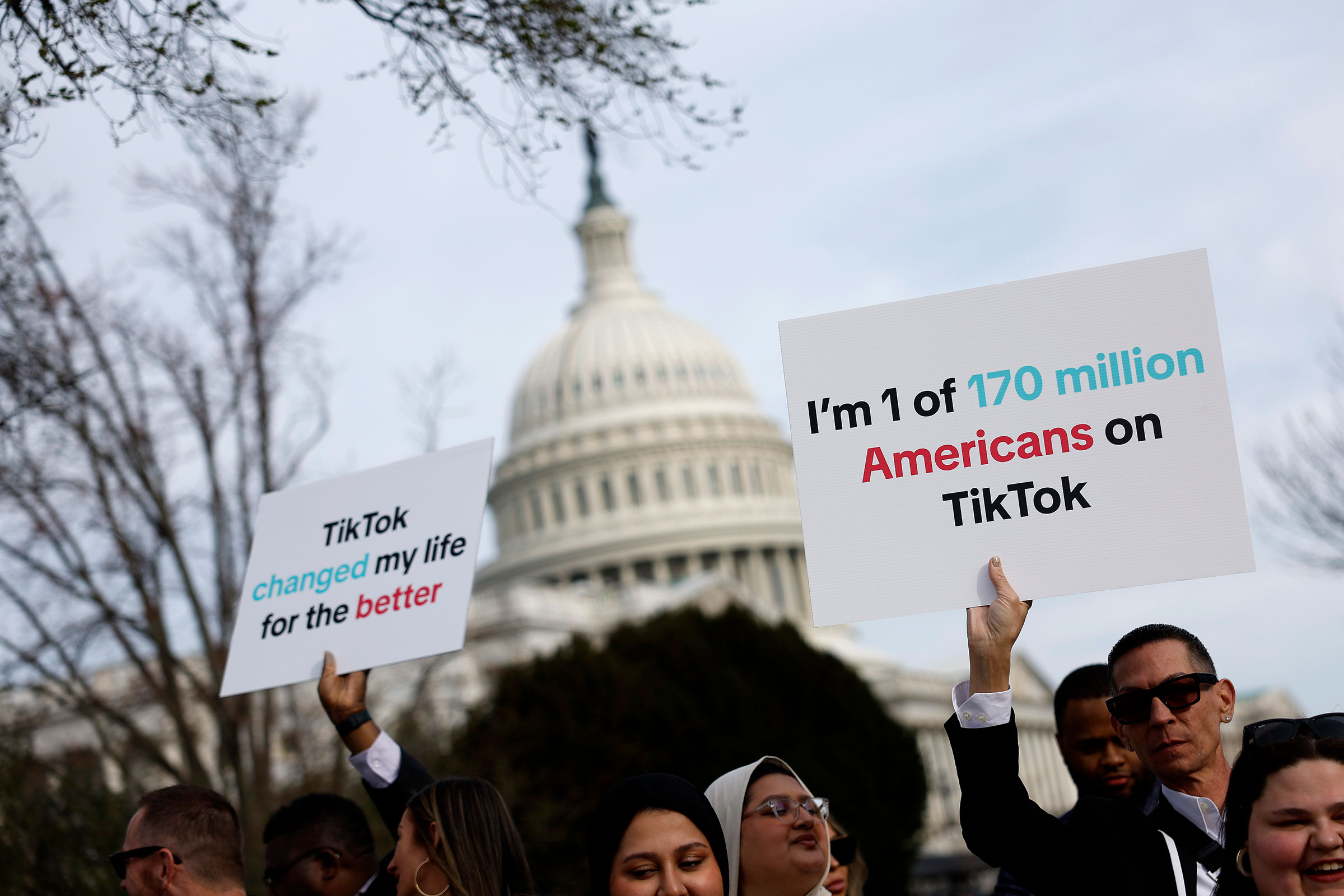
TikTok’s community of creators and users is uniting to oppose a bill that threatens the very existence of their beloved platform in the United States. The proposal has quickly passed through the House of Representatives and now on its way to the Senate. This issue has brought together a wide array of individuals, from content creators to casual users, all determined to protect what they see as their rights in the digital space.
Leading the opposition is V Spehar, a well-known TikTok influencer with the UnderTheDeskNews channel, who has openly criticized the proposed ban. Spehar’s criticisms are not just aimed at the potential loss of a platform but also target the dismissive attitude of lawmakers towards the TikTok community. This sentiment resonates deeply with many, as Spehar articulates the frustration felt by many Americans at being sidelined in a debate about their own digital expression.
The proposed legislation would force ByteDance, the Chinese parent company of TikTok, to sell the app. If not, the law would make it illegal for app stores to distribute it. This move, complicated by China’s export rules and its opposition to a forced sale, places TikTok’s presence in the U.S. in jeopardy. The platform, home to over 170 million American users, has become a vital part of daily life for many, offering not just entertainment but livelihoods for its creators.
TikTok Community Fights Back
In response to the looming threat, TikTok has taken the unusual step of urging its users to directly contact their Congressional representatives to voice their opposition. This call to action has led to a surge in communications to lawmakers’ offices, a testament to the platform’s ability to mobilize its user base effectively. The situation has even caught the attention of mainstream media, with late-night host Stephen Colbert humorously commenting on the issue, a portrayal that has only fueled the determination of TikTok’s community to be taken seriously.
The speed at which the bill has progressed has caught many by surprise, underscoring the urgency of the situation for those who rely on TikTok for income. Creators like Jules Terpak, a Gen Z tech commentator, highlight the significant role TikTok plays in their lives, making the threat of a ban all the more pressing. The call to action has not gone unheeded, with creators such as Noah Glenn Carter and @cancelthisclothingco leveraging their substantial followings to spread awareness and encourage active opposition to the ban.
Senator Tom Cotton and other lawmakers have accused TikTok of having ties to the Chinese Communist Party, claims which TikTok and its CEO have strongly denied. However, worries about data privacy are driving the push for new legislation, despite evidence suggesting that the issue extends far beyond TikTok to the broader tech industry. Critics of the proposed ban, such as digital rights advocate Sarah Philips from Fight for the Future, argue that singling out TikTok could be rooted in xenophobia and ignore the fact that many tech companies collect and sell user data.
The debate over TikTok’s future has extended to platforms like X, where opinions vary widely. Some mock the platform’s content, while others question if Congress should focus on TikTok when there are other big issues facing the nation. This polarization reflects broader discussions about how much the government should regulate technology and the role of digital platforms in today’s world.
As TikTok’s community continues to fight the proposed ban, the outcome of this battle could have significant implications not just for the platform and its users but for the digital landscape at large. The bipartisan support for the bill contrasts sharply with the platform’s appeal across political and social lines, suggesting that the debate over TikTok is about more than just data privacy or geopolitical tensions. It’s about the role of technology in our lives, the limits of government intervention, and the future of digital expression.
With the bill’s fate hanging in the balance, the TikTok community’s efforts to push back against the proposal reflect a larger struggle for control over the digital public square. Whether these efforts will sway lawmakers remains to be seen, but one thing is clear: TikTok’s users and creators are not ready to give up their platform without a fight.
Related News:
Featured Image courtesy of Anna Moneymaker/Getty Images
